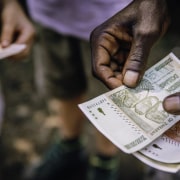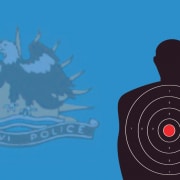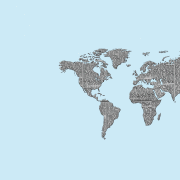|
Getting your Trinity Audio player ready...
|
First published on Transparency International
Sunday 3 May was World Press Freedom Day, an important opportunity to highlight the critical role investigative journalists play in identifying and exposing corruption.
It’s also a good moment to recognise the increasingly dangerous environment that journalists and independent media face across the globe, particularly when reporting about corruption linked to authoritarian regimes, powerful individuals and organised crime.
The shocking murders of reporters like Daphne Caruana Galizia and Ján Kuciak, killed for uncovering corruption in Malta and Slovakia respectively, are far too common worldwide.
The public outrage generated by these murders in the heart of the European Union will likely ensure the perpetrators are brought to justice. In countries with a weaker rule of law and high levels of corruption, justice will be harder to achieve.
In fact, countries with higher rates of corruption, as measured by the Corruption Perceptions Index, also tend to have the fewest protections for the media and journalists.
Previous research shows that on average, every week at least one journalist is killed in a country that is highly corrupt and one in five journalists die while covering a story about corruption.
Around the world, reporters risk their lives every day for simply doing their jobs.
Journalism a crime in many countries
Laws and intimidation tactics are used by some governments and politicians to silence critical voices. In Mongolia, the government drastically limited press freedom, as part of a crackdown on the spread of misinformation. With seemingly arbitrary decisions on what is fact or fiction, reporters risk being subjected to large fines, community service or travel restrictions.
Although curbing the spread of misinformation is important, and our research shows several ways governments and civil society organisations can help combat fake news, in practice, Mongolia is using the law to limit free speech and impose harsh sentences on journalists.
For example, U. Bolortuya, a journalist for Mongolian independent media site Urug.mn, was working to expose corrupt procurements by Erdenet, Mongolia’s largest state-owned copper company. After refusing to sign a contract to silence her, one of the suppliers linked to the company filed a legal case against her.
This is only the latest attack on press freedom in Mongolia. N. Unurtsetseg, a journalist for Zarig.mn, was charged 12 times for defamation in 2019 and four times in 2020. These cases were instigated by politicians who were mentioned in her reporting. Although Unurtsetseg successfully beat all but one of the charges against her, she still has to pay a fine equivalent to US$800 – approximately two months’ salary for the average journalist in Mongolia.
In Egypt, the government is using the coronavirus or COVID-19 pandemic as a pretext for tightening restrictions on media and jailing reporters for misinformation. Independent media that don’t follow the specific rules from government authorities risk losing their jobs, or worse, interrogation and imprisonment, according to Amnesty International.
Some reporters, like Ignace Sossou in Benin, are currently facing prison sentences for simply quoting a government official during a workshop, according to the Committee to Protect Journalists.
Slapp suits and legal measures
Other legal tactics used to persecute journalists include SLAPP suits or strategic lawsuits against public participation. These cases are often pursued with the sole intention of intimidating and censoring journalists or activists.
In the UK, after years of costly legal proceedings, the Organized Crime and Corruption Reporting Project (OCCRP) recently settled a SLAPP lawsuit filed against them by an Azerbaijani businessman and politician implicated in the Azerbaijani Laundromat corruption and money laundering investigation.
In Ukraine, an independent media outlet has faced criminal charges for filing freedom of information requests.
In Zambia, independent news outlet News Diggers! was sued for libel by two government ministers and the president’s daughter, after reporting on an investigation that implicated them in the illicit trade of timber from the endangered mukula tree.
All of these cases have one common feature: investigative journalists fearlessly exposing wrongdoing to hold powerful individuals and organisations to account.
Terrorism charges and police persecution
In Myanmar, police are cracking down on anti-corruption activists and independent media outlets, including Tha Lun Zaung Htet, head of Khit Thit Media, for re-posting an interview with an insurgent group. Tha Lun Zaung and other reporters are currently facing terrorism charges for their coverage of this issue.
Showing solidarity to defend press freedom
Killings and attacks against journalists have been on the rise worldwide, so these are not isolated incidents. Urgent action from governments is required to protect journalists.
Partnerships between journalists and civil society organisations are critically important. For example, through the Global Anti-Corruption Consortium, we work with OCCRP and other partners to advocate for policy change and ensure accountability for the corruption uncovered in investigations around the world.
In addition, developing the next generation of journalists is essential. As part of the Journalists for Transparency initiative, we work with young journalists to expose and raise awareness of corruption.
Most of all, we have to show solidarity with journalists working to expose the corruption that affects us all.








